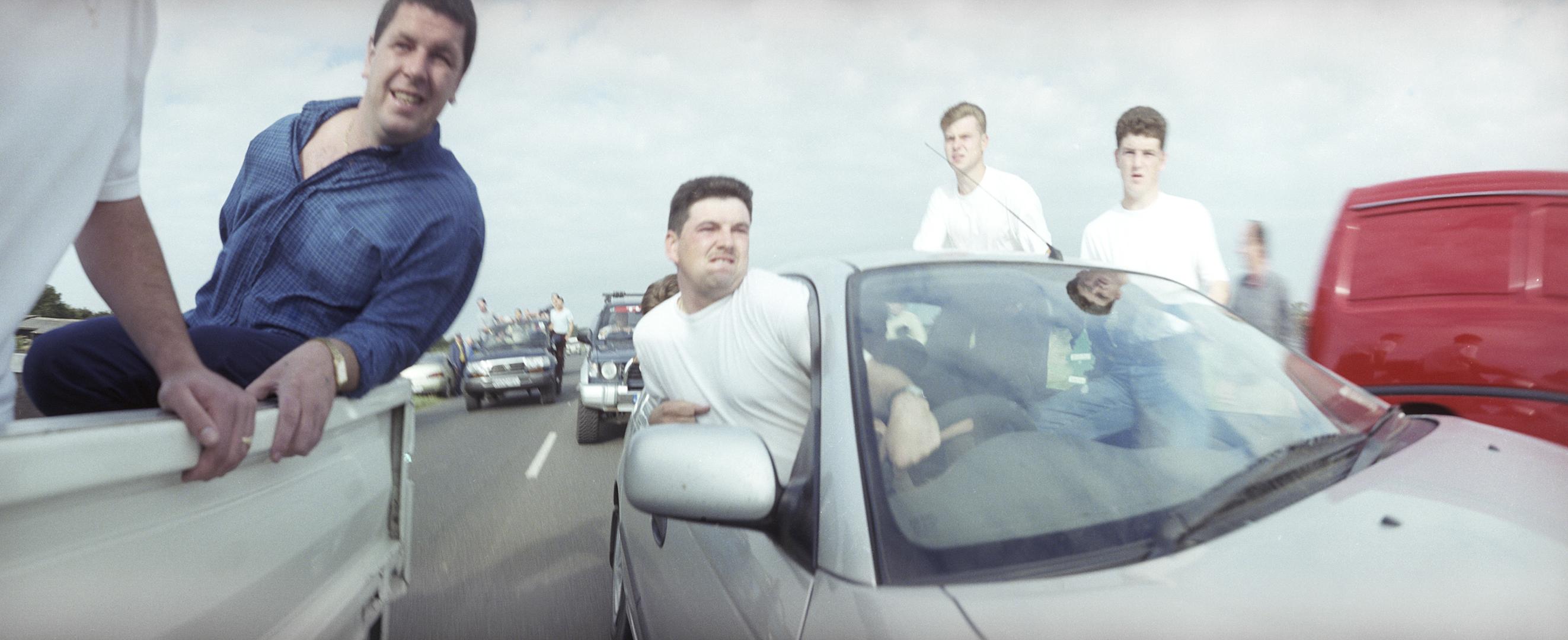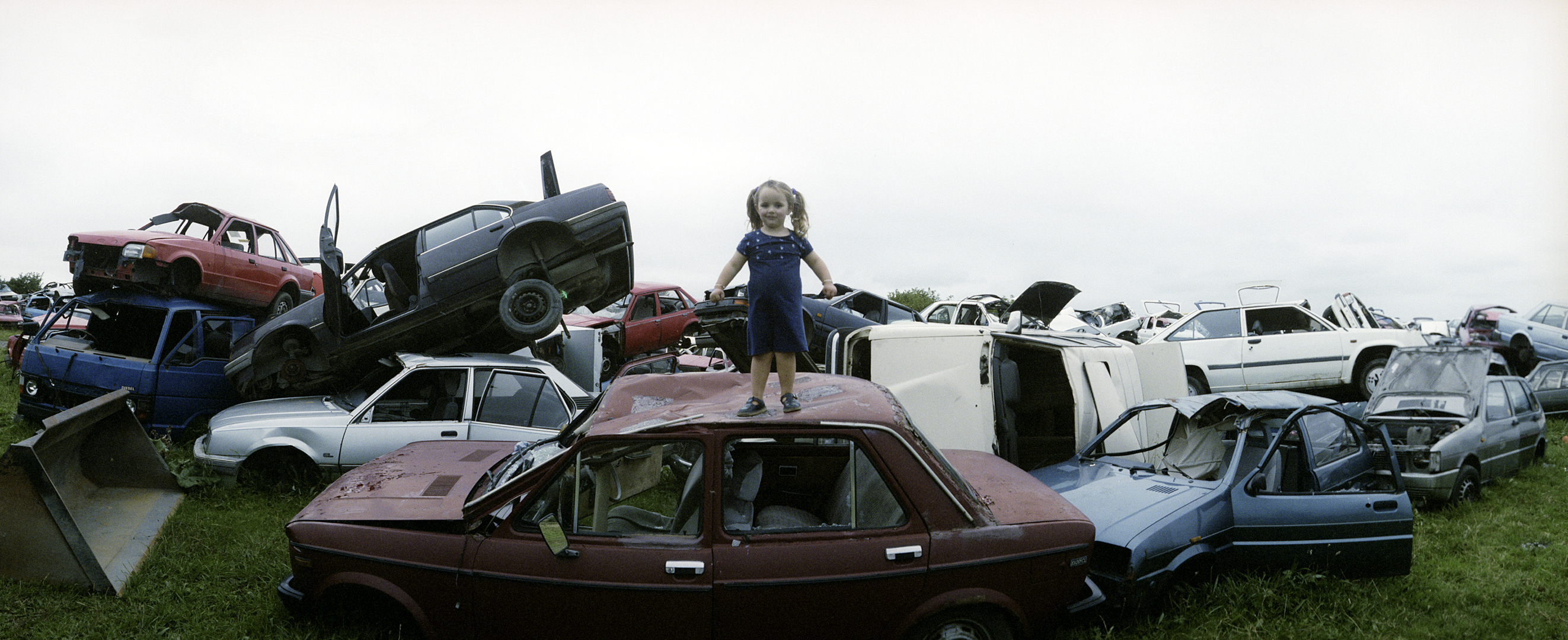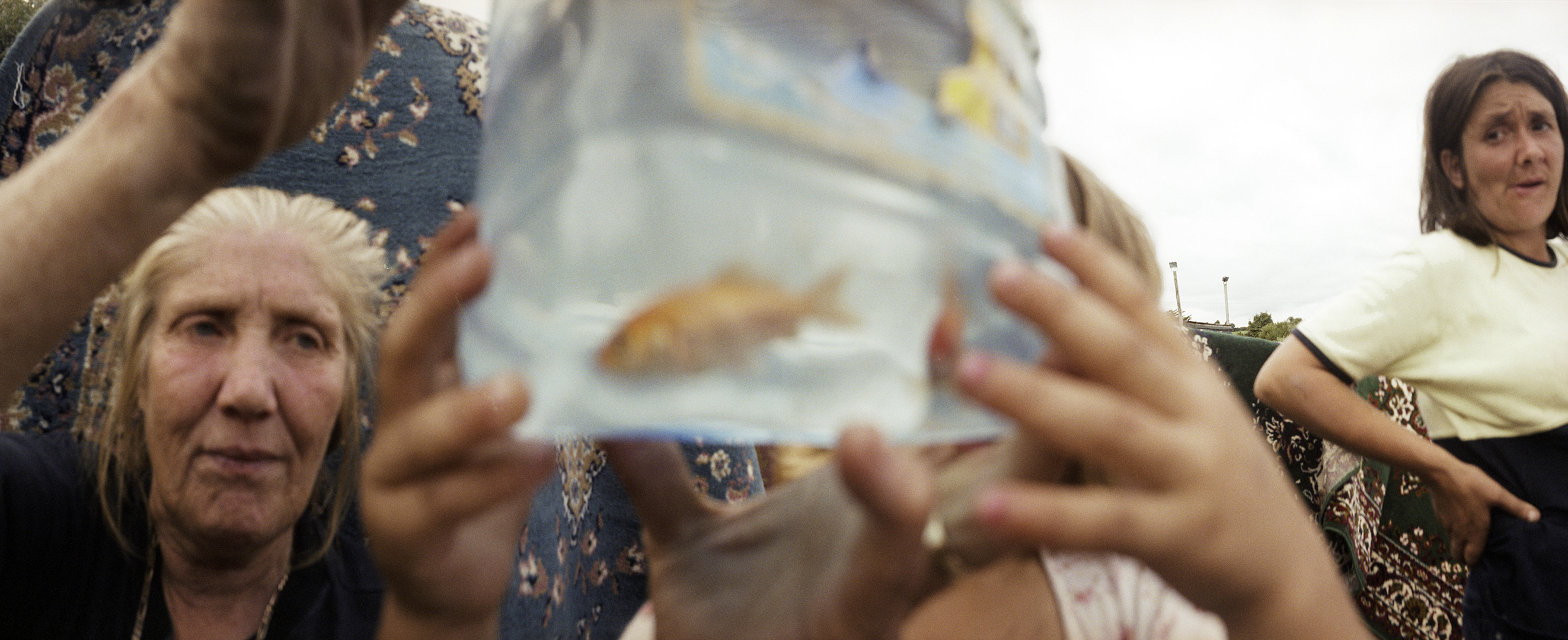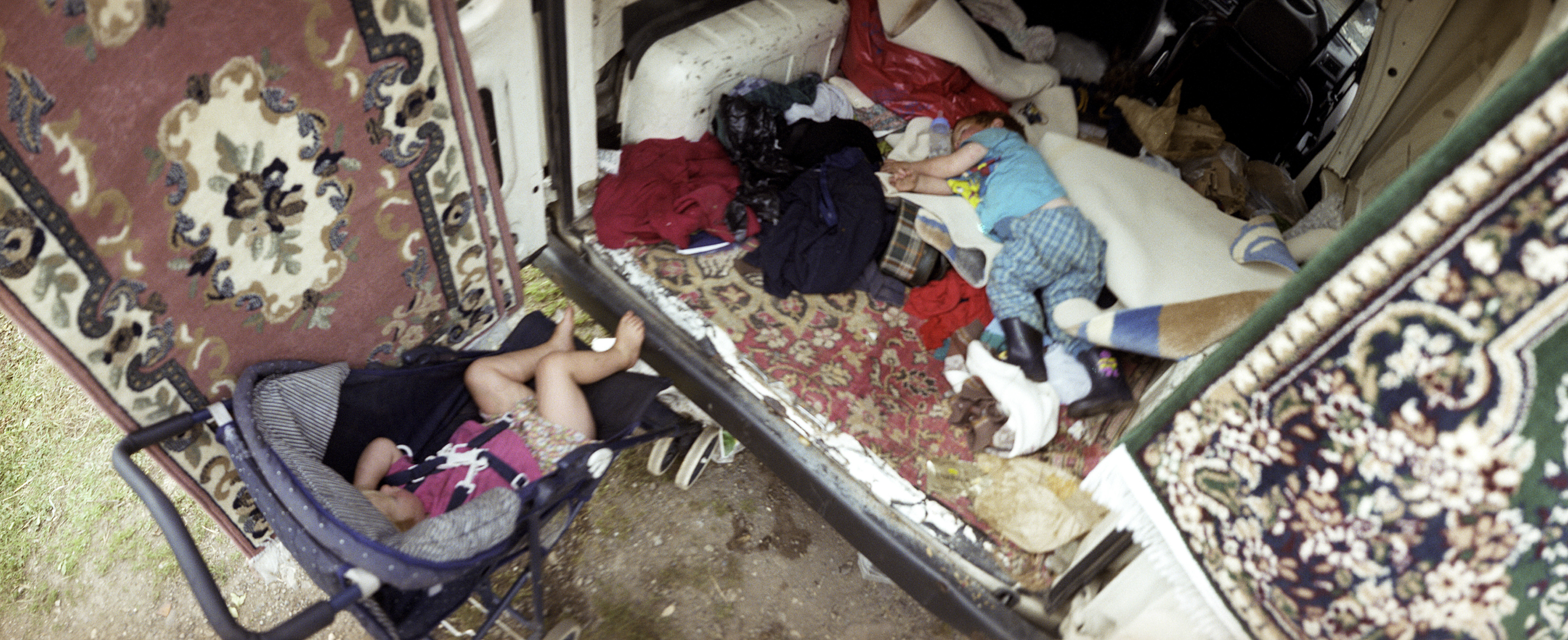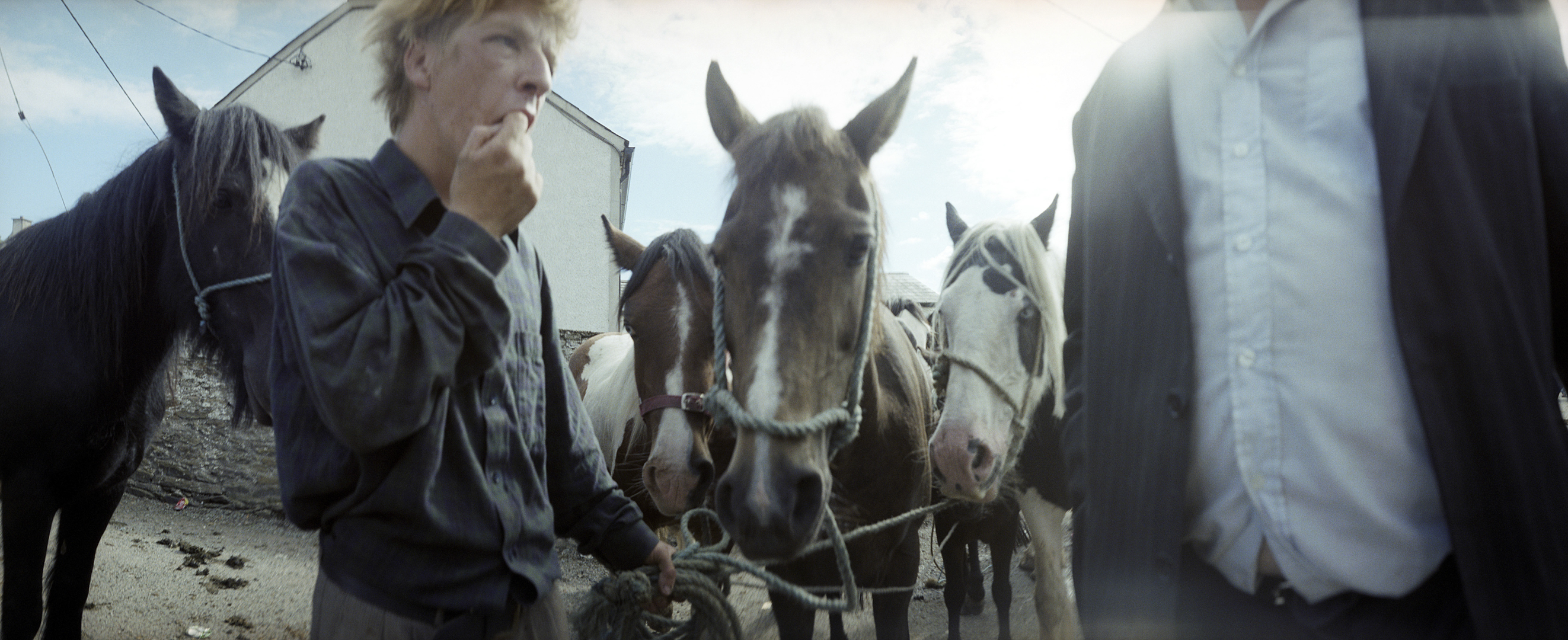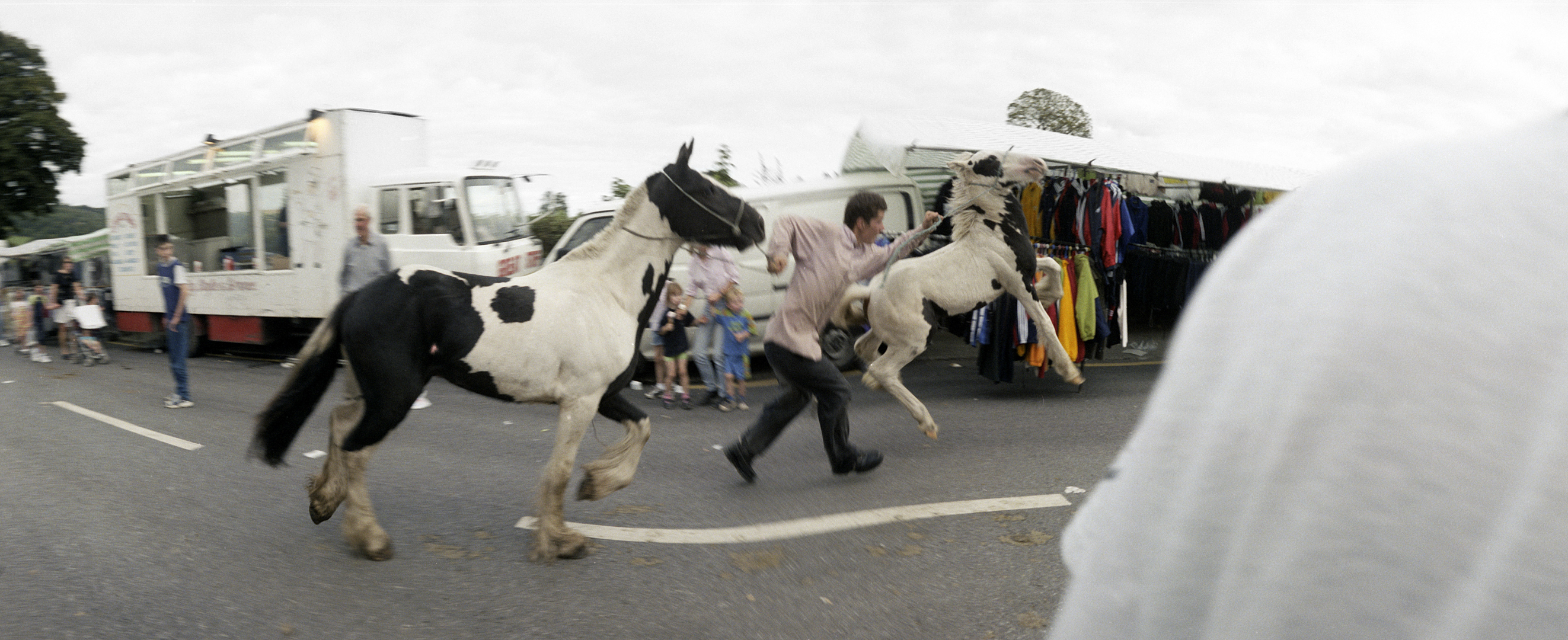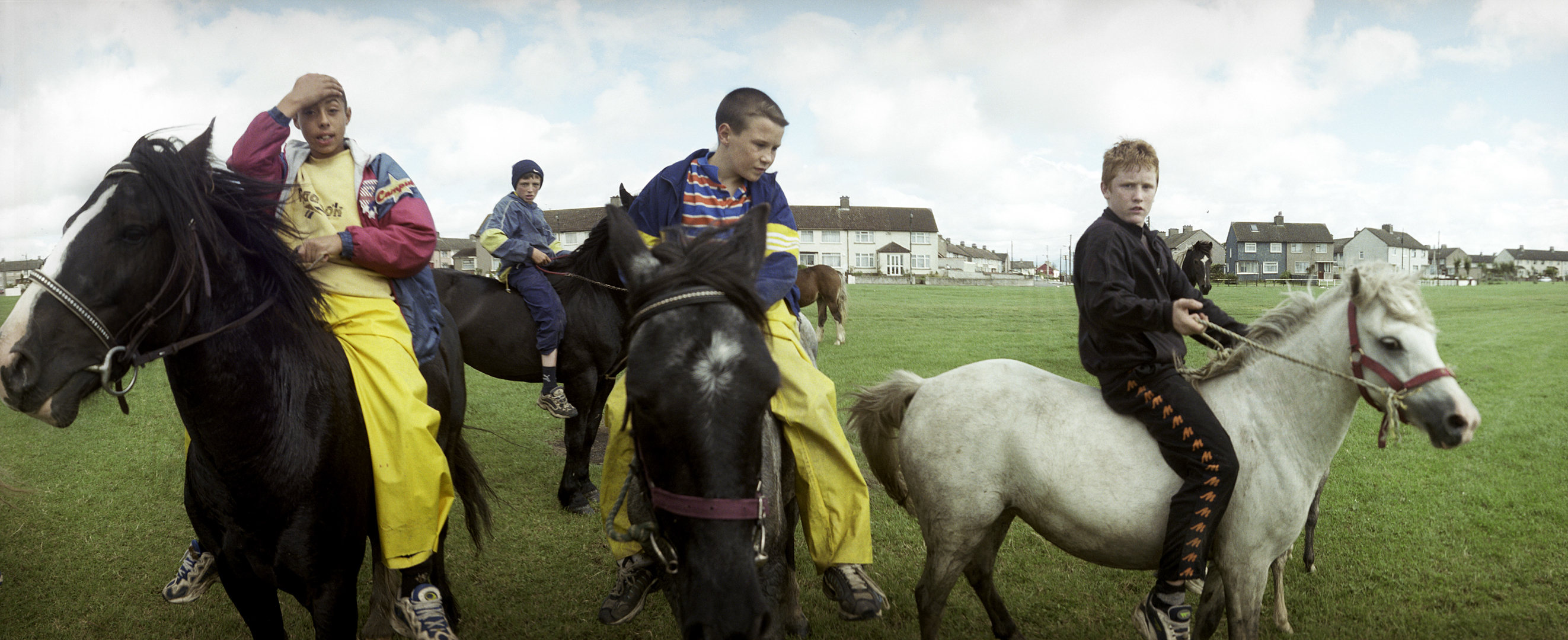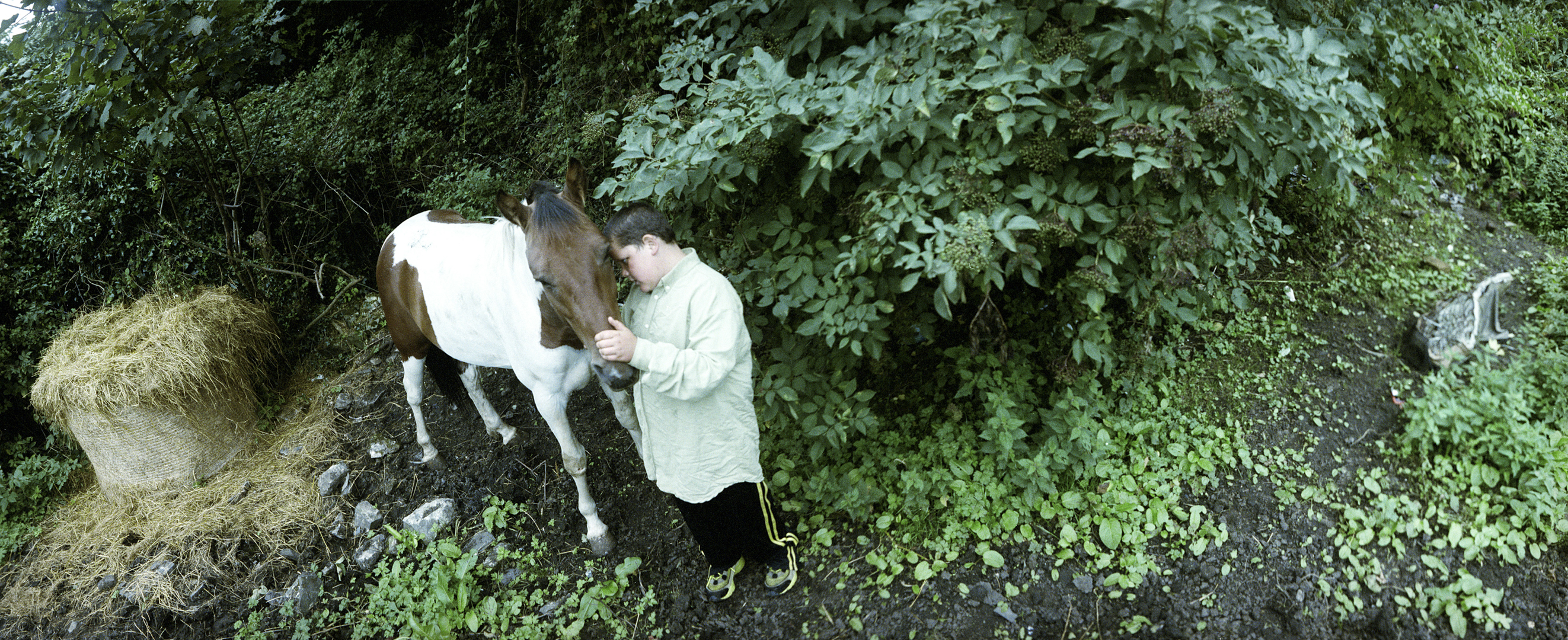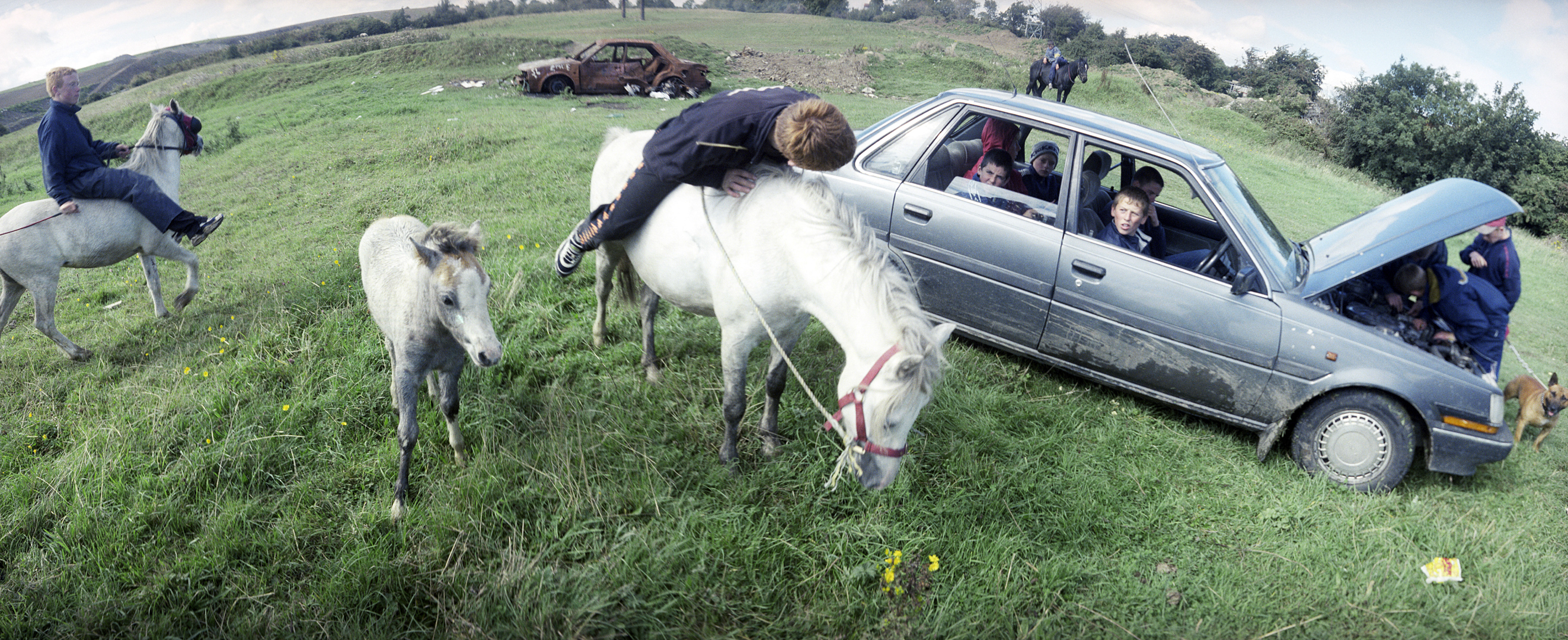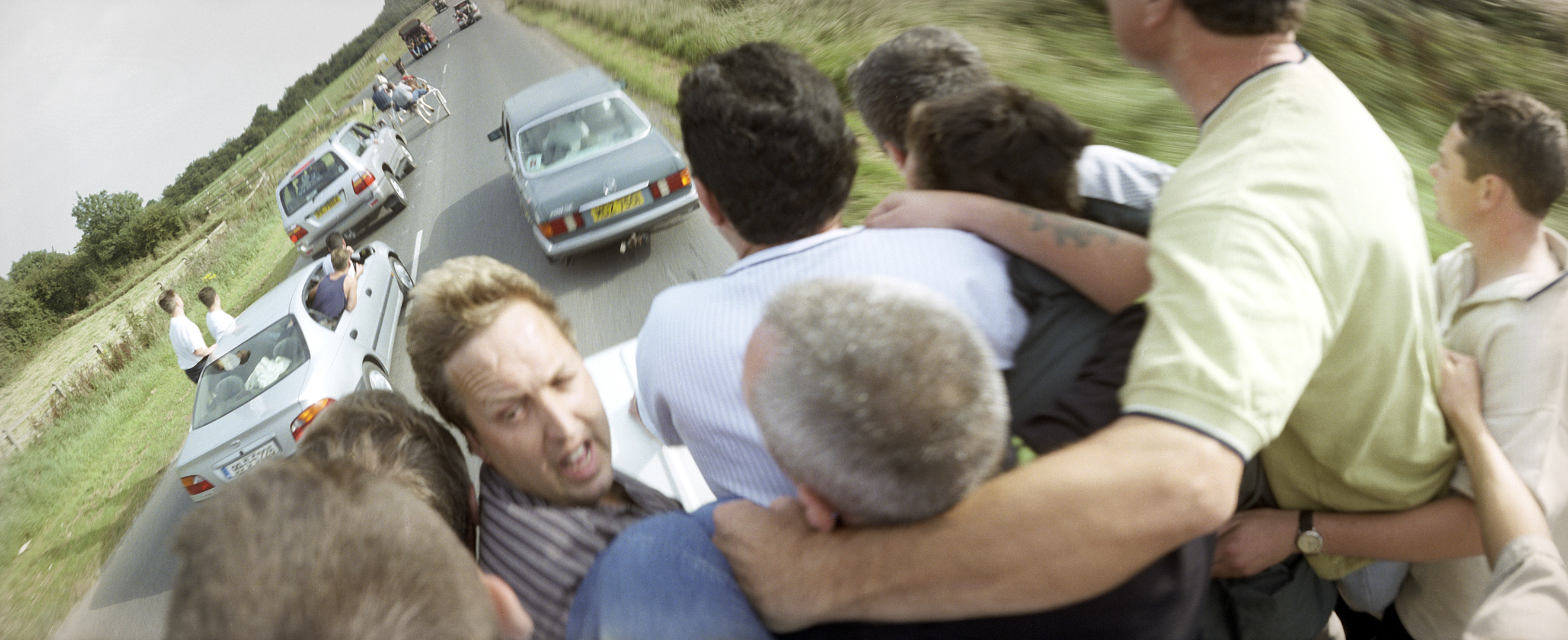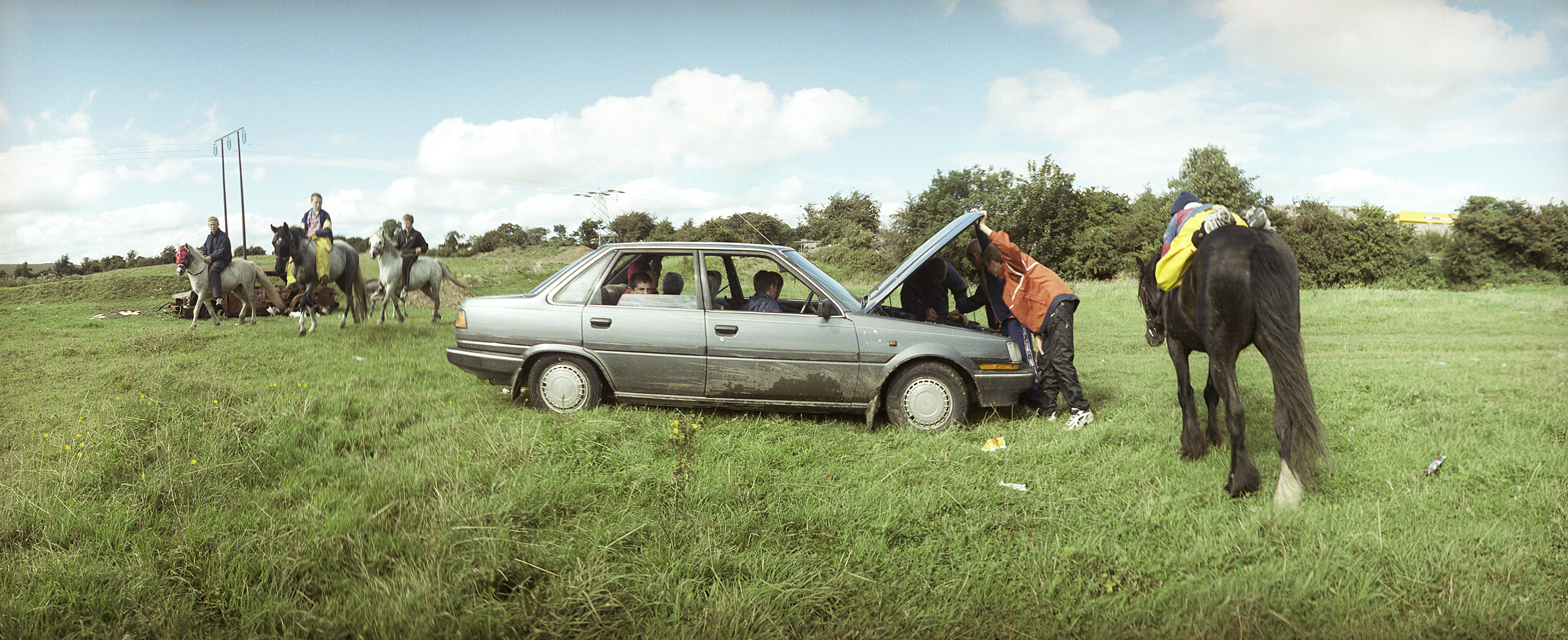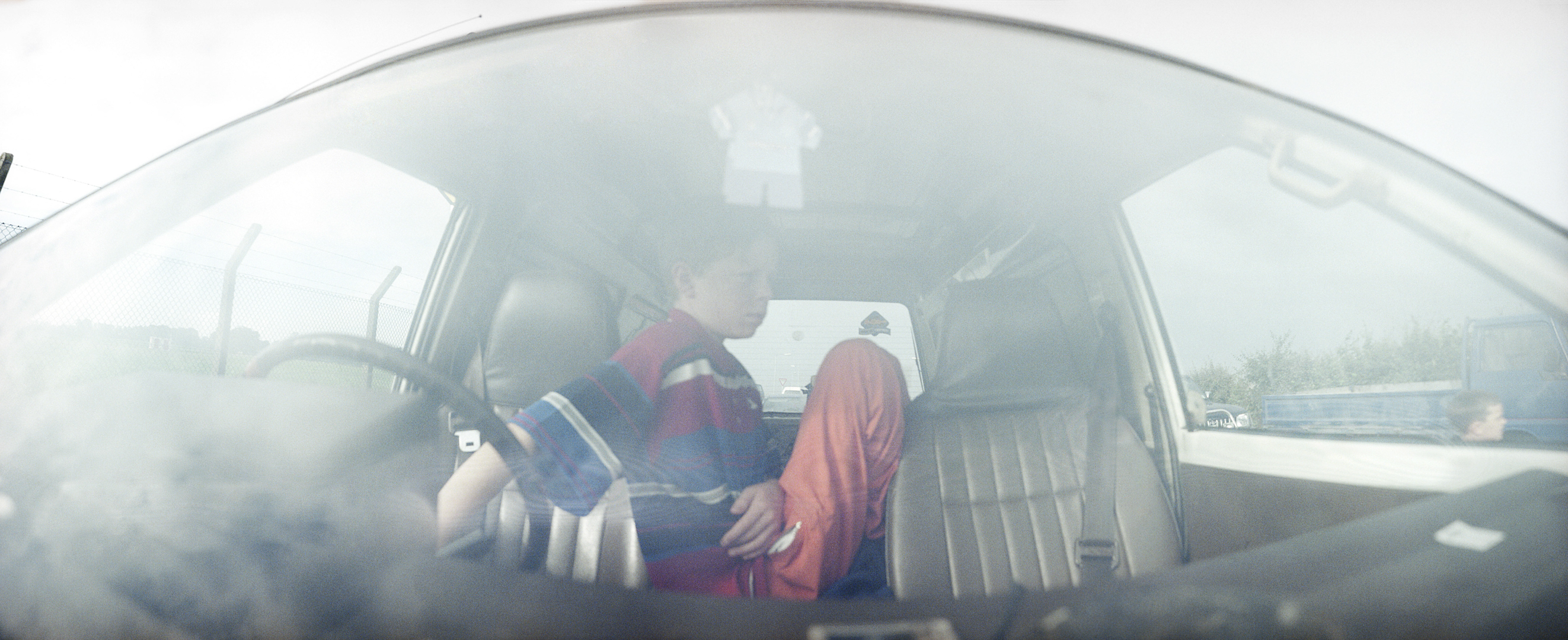Outlaws, 1999
The Irish State has long seen the Traveller’s existence as a problem. The local authorities try to assimilate them into society by giving them housing and education, assaulting and meat mincing them to a point where Travelers are ambiguous about their own identity. Undermined by their settlement, facing extreme brutality by the State on a daily basis, the Travellers are impoverished both psychologically and economically.
Irish Travellers formerly travelled in rural areas and performed a variety of trades and services, most notably tinsmithing, horse-dealing and peddling, living in tents and horse-drawn waggons. Today concentrated around Dublin they are the last indigenous itinerant group left in Europe. They now tow their caravans with cars and work mainly in the scrap metal trade but they persist in keeping horses even though they have little commercial value because they represent the waning Travelers cultural identity and the symbol of what little freedom they have left. Now the authorities are taking that too.
The Control of Horses Act was passed in 1996 and has since been enforced in Dublin and its surrounding areas: The Dublin City Control Area. Under the Act every owner must obtain a license for his horse, where a microchip for identification purposes is implanted in its ear. To obtain this license the owner must pay an annual fee and each horse must have at least half an acre of grazing land and a stable. Even for settled Travellers it is very difficult to fulfill these criteria. If these requirements are not met the local authorities confiscate the horse and if a license is not obtained within a certain delay, the horse is either sold on or, if nobody wants to buy it, it is put down.
Resulting from the defiance of the Horses Act, Sulky racing or Trotting has become extremely popular amongst Traveller groups in the Dublin region. These races are illegal so their venue is kept secret up until the last minute, held early in the morning or late at night on a two mile stretch of main road somewhere in the Dublin region. The races have become the main social venues for Dublin’s Traveller communities, where a winning horse can earn its owner up to £20,000. For many this is the Traveller’s last stand, struggling against odds to overcome a disastrous economic situation, trying to hold onto their horses, up against an imposed integration where their culture and identity are at stake.
